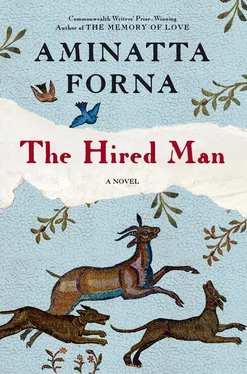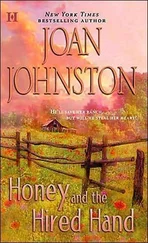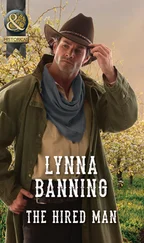Javor and Fabjan are joint owners of the Zodijak but Fabjan takes all the big decisions and mostly this suits Javor just fine. Two things he hates: conflict and hard work. Not that he’s lazy, it’s simply that he’s never had to try too hard. His father is influential, his business partner has ambition enough for both of them. As a young man he walked a straight line from the love of his mother to the love of his wife. He does not lie, because he doesn’t need to. He has never been betrayed; he has never been frightened.
In silence we sit at the table and pick the last shreds of meat from the hollow, ivory bird bones. Anka is thinner, the shadows under her cheekbones have deepened, her skin is pale even though it is summer. For all her outward robustness, there’s a new delicacy about her. She is more beautiful than before. She uses her index finger to wipe the gravy from her plate and lifts it to her mouth. No bread for a week now. We dine on woodpecker and lark, like the kings of long ago, like the Parisians who dined on the elephant meat, on Castor and Pollux. Eating has become our only pleasure. We talk about food all the time.
‘Asparagus, veal saltimbocca,’ I say, describing the food in a hotel restaurant I worked in briefly. ‘With mozzarella and ham from Istria.’ The chef in that restaurant was an Italian and good, but it was attached to an ageing hotel whose corridors smelled of mould and toilet cleaner: the vast restaurant was more often empty. That nobody came to eat his food didn’t seem to bother him in the least; he executed every order as though he were cooking for a duke. ‘Once in pity I sent through a fake order. Nobody was in the restaurant and the manager was asleep in the office behind the front desk. I took the order, I served it to myself. I ate it. Veal saltimbocca. Asparagus. Another time he made squid ink risotto for the two of us, he told me it was his signature dish. They made it in a lot of the restaurants I worked in but I never tasted it so good.’
As you see we did a good job of holding on to the lie of civilisation.
‘You need a haircut,’ I say to Javor. The soft brush of his hair has grown lank.
‘I told him the same,’ says Anka. ‘You know what he says?’
‘I grow it as an act of protest,’ says Javor. ‘When we are free I will cut my hair. I will also go to the movies, eat fucking maraschino ice cream and demand an audience with the Pope.’
While I listen to all the things Javor never knew he wanted, I look around. There is Anka’s bra hanging to dry at the top of the banister, the picture of her grandparents on the dresser: her grandmother in mud-caked man’s shoes, a wedding dress, her hair framed by the points of a star, on the couch a grey cat reaches out to touch the air with a single paw. ‘Don’t go,’ says Anka, when I rise to leave.
‘I need to, it’s late.’
‘To where? Stay.’ Javor punches me lightly on the arm. ‘It’s dark. Not safe to be out.’
‘As safe as staying.’
‘True.’ The window shutters, closed tight against the night, maybe even the dead eye of a rifle sight high in the hills. Javor stands to switch off the single light above the table before he opens the door.
I walk home slowly. Across the fields the houses of Gost are hidden by the darkness: not a single light, not a single sound, except the whisper and smell of the trees, no movement save for a pair of bats leaving their roosts. I walk on listening to the sound of my footsteps. I imagine the arc of a shell coming from the hills, the blue house blown apart behind me: the slender fish on the sides of the bowl, a golden star and the grey cat flying through the night sky.
* * *
I hold up the piece of mirror I use to shave and rub a hand over my head. Take the scissors and cut the hair blind, use a razor to remove the rest. All this by candlelight, some minutes past three, an hour and a half before the dawn. I dip my fingers into a jar of paint and draw two fingers across my nose and cheekbones, one side and then the other, and remember Anka’s finger sliding across her plate last night, taking up the last of the gravy. Just like the old days when we went out before school: Anka, Krešimir, me. How I used to enjoy those early morning hunts.
I blow out the candle. Downstairs I pull an old woollen hat down over my forehead, from the rack I collect my rifle, the old 7.62 my father took such care of the years I was away. Outside Kos, in her pen, rises to greet me. I scratch the top of her head with two fingers and I promise to feed her when I get back. Today I’m hunting alone.
The morning air is warm and damp and the crickets have gone quiet. There will be a mist later, which is no bad thing. I breathe deeply, there’s a tension in my gut. My heartbeat is slow and regular. My head is entirely clear. I leave the road almost immediately and duck into the long field, staying close to the hedge; moving at an easy pace I head straight uphill until I reach the pine plantation. The last rows of trees mark an undeclared border between the people of Gost and the men in the hills. They don’t drop below it and we don’t rise beyond it. The two hundred or so metres of slope below the plantation is no man’s land.
Moving from tree to tree, it takes me forty minutes to reach within half a kilometre of the old bunker where Krešimir and I used to play.
They’ve changed the position of the watch; it takes a few minutes to find him. He’s awake, obviously exhausted, teetering on the edge of sleep. This is the worst time of the night for the look-out, standing alone in a dark forest, thinking no further ahead than the next hour, half-hour, fifteen minutes — the end already in sight. I see him check his wristwatch, flashing his torch on and off to do so. My watch, my father’s watch which I’ve been wearing these past few weeks, is on the table by the side of my bed; on a morning as still as this one I might be given away by the ticking of the watch. It’s early and I decide to have a look to see what’s happening in the camp. I draw a loop around the guard and head uphill.
The smell of them: ashes and burned pine resin, earth, night breath, canvas and oil, underneath it all the sting of sweat and ammonia. With my next step I set foot on a firm crust of earth which yields to something softer. I ease my weight back off, too late. The stink floats upwards and clots in the back of my throat. I try not to breathe in. Along with their rations the soldiers are forced to swallow everything, all the boredom, anger, homesickness and frustration which comes with doing what they are doing; the brew curdles in their guts, their shit stinks of it.
Four guns. I am struck by the size of them. Even though I was once trained to use these very guns, in my mind’s eye they have grown to the size of howitzers, but really they are much smaller. The barrel reaches my shoulder, the wheels just above my knees, that’s all. There’s enough ammunition for more than a month. Probably there must be twenty men, asleep in their bivouacs.
In all their imaginings, this is probably not how they saw war: sitting on a hill, trying to frighten the shit out of people on their way to work and to school, blowing them apart. They start off being sickened by it, slowly become inured, and then bored, the resentment begins — that’s when the fun starts. I saw it when I worked for a short time in a slaughterhouse. There were guys who in the first week could barely keep the contents of their stomachs down, a month later would be ramming the stun gun up the backsides of pigs and slitting the throats of lambs in front of the ewes. Not all the guys, just some of them. And maybe some of these soldiers have enjoyed it all from the start: look through the field scope and decide who to kill today. A man on a scooter. A couple leaving a café. A young woman carrying a meat paste sandwich to her father in a shack at the end of a garden.
Читать дальше












